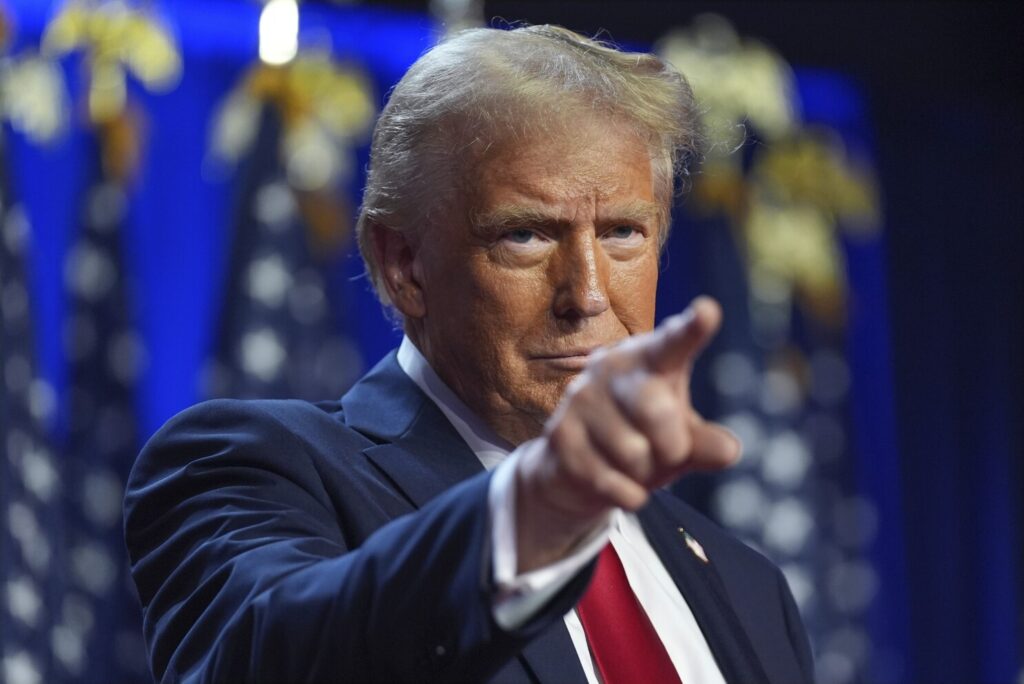
Monday Deadline Set for Trump Travel Ban on 19 Nations:
Washington, D.C. Washington: Announcing that citizens of twelve nations will be prohibited from visiting the United States and those from seven others will face restrictions, President Donald Trump on Wednesday revived a trademark policy of his first administration.
The travel ban takes effect Monday at 12:01 a.m., a cushion that might help to prevent the turmoil that erupted at airports all over when a similar action was implemented with practically no notice in 2017. After the Supreme Court ruled with Trump, who announced intentions for a fresh ban upon entering office in January, he seems to be on solid ground this time.
A few, but not all, of the twelve nations also made appearances on Trump’s first term’s banned country list. The new prohibition covers Afghanistan, Myanmar, Chad, the Republic of Congo, Equatorial Guinea, Eritrea, Haiti, Iran, Libya, Somalia, Sudan, and Yemen. Visitors from Burundi, Cuba, Laos, Sierra Leone, Togo, Turkmenistan, and Venezuela will have more limited access.
Trump linked the new restriction to Sunday’s terror attack in Boulder, Colorado, in a video posted on social media, claiming it highlighted the risks some guests overstaying visas bring. Not on Trump’s banned list, Egypt is the nation where the attack suspect comes from. The Department of Homeland Security claims he remained too long on a tourist visa. Trump claimed some nations have “deficient” screening and vetting or have in the past refused to remove their own nationals.
His conclusions are mostly based on an annual Homeland Security report of visa overstays of visitors, business visitors, and students arriving by air and sea, therefore highlighting nations with high percentages of remaining after their visas expired. Trump responded, “We don’t want them.” Including Afghanistan infuriated some supporters who had helped resettle their people.
The ban offers exceptions for Afghans on special immigrant visas, mainly those who cooperated most closely with the U.S. government during the two-decade-long conflict there. With over 14,000 arrivals in a 12-month period through September 2024, Afghanistan was likewise among the biggest suppliers of resettled refugees. On his first day of presidency, Trump banned refugee resettlement.
“To abandon Afghanistan, a country whose citizens supported American military personnel for twenty years, is a moral stain. Shawn VanDiver, the president and board chairman of #AfghanEvac, expressed his disapproval. Trump said Afghanistan lacks sufficient screening and vetting procedures as well as a competent or cooperative central entity for issuing passports or civic documentation. He also mentioned the prices for overstay visas.
Trump included Haiti, which escaped the travel ban during his first term, due to its high overstay rates and significant numbers of illegal immigrants. While police and a U.N.-backed mission fight a surge in gang violence, with armed men controlling at least 85% of Port-au-Prince, Haitians continue to flee poverty, hunger, and the deepening political instability.
Trump said, “Haiti lacks a central authority with sufficient availability and dissemination of law enforcement information necessary to ensure its nationals do not undermine the national security of the United States.
” The Iranian administration did not provide a prompt response regarding its inclusion on the list. Declaring it a “state sponsor of terrorism,” the Trump government barred travelers except for those already carrying visas or arriving into the country on special visas America grants for minorities under persecution.
Other Mideast countries on the list, Libya, Sudan, and Yemen, all deal with continuous civil conflict and territory under control by different groups. While Yemen’s war is essentially frozen and Libyan forces remain armed, Sudan is engaged in active conflict. Resettlement groups for refugees and international relief agencies sharply denounced the new prohibition.

President of Oxfam America Abby Maxman stated, “This policy is about sowing division and vilifying communities that are seeking safety and opportunity in the United States, not about national security.” A Jan. 20 executive order Trump issued requiring the departments of State and Homeland Security as well as the Director of National Intelligence to compile a report on “hostile attitudes” toward the U.S. and whether entry from some nations represented a national security risk resulted in the travel ban.
In January 2017, Trump signed an executive order prohibiting citizens of seven mostly Muslim nations—Iraq, Syria, Iran, Sudan, Libya, Somalia, and Yemen—from visiting the United States during his first term. This was one of the most chaotic and confusing incidents during his brief presidency. Travelers from certain countries were either arrested at U.S. airports after they arrived or denied from boarding their planes to the country. Along with businesses and visitors to friends and relatives, they included teachers and students.
Often referred to as the “Muslim ban” or the “travel ban,” the order was retooled under court challenges until the Supreme Court maintained a version in 2018. The restriction affected many different types of travellers and immigrants, including North Koreans, some Venezuelan government officials and their families, as well as individuals from Iran, Somalia, Yemen, Syria, and Libya.
Trump and others have supported the first ban on national security grounds, contending it was motivated more by country protection than by anti-Muslim sentiment. On his first campaign for the White House, the president had, however, demanded a clear ban on Muslims.






2 thoughts on ““Trump Travel Ban: 19 Countries Face New U.S. Entry Restrictions From Monday””